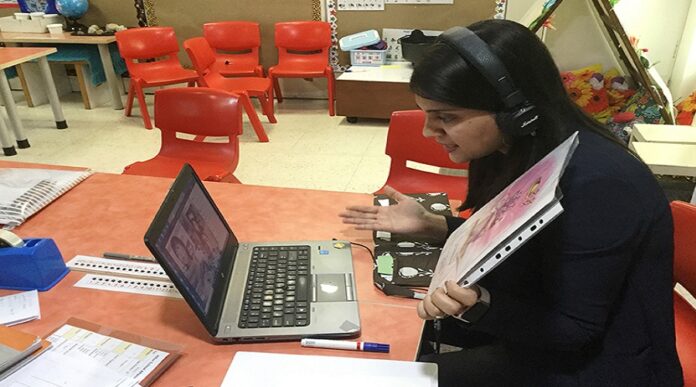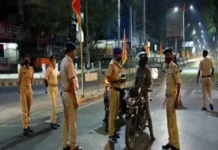What do teachers in Telangana think about online teaching, which is increasingly being touted not only as a stopgap measure for wealthy students during the pandemic, but a “new normal” that promises a degree while ensuring education business operators lowered costs? #KhabarLive spoke to various teachers from government and private schools to find out.
Many private colleges are continuing to hold online classes and additional webinars. Shashikala, who is currently working on her PhD, says she has been getting her university scholarship on time. With experience as a professor of English, she commented:
“The pressure on teachers is huge. I don’t have much experience with school teaching, but in colleges, especially in a department like mine, or any other field in the humanities, teachers have never been compelled to have a lesson plan or to stick to strict lesson plans.
“This insistence not only takes away their liberty to interact but also deprives them of the chance to build on their lectures based on conversations with their students.
“The classes are now didactic rather than dialogic. A real setback.”
For Urmila Kumari, a teacher in Hyderabad, the marking system must also be changed with the new online teaching. While she hasn’t had any unpleasant experience in her online classes, her friends in private schools have:
“There’s a disobedient child who wants to create nuisance in the classroom. Well, now it is easier since s/he can do so behind a digital screen. I strongly feel that some grades or marks must be reserved for such situations. It would be a lesson for the others, and would help in keeping a check on their behavior.”
Despite the pandemic and economic distress, many private institutions have dismissed contractual teachers from their jobs. They have deducted salaries by removing travel allowances.
Government school teachers said that while none of their colleagues have been dismissed, they have all had parts of their salary deducted, purportedly for various state and/or central government funds, as have other government employees.
Arishya Mubeen, a 22-year-old teacher in Hyderabad, has after much practice becomes more comfortable with the software programs used for online teaching. On the whole, she feels her students have become more laid back about their studies, but she is optimistic.
“They have an excuse to escape out of any and every assignment I give. Although online classes deprive students and teachers of a social environment, this pandemic has revolutionized the education sector. Classroom teaching has completely turned virtual and is exposing children to new ways of thinking and developing interests.
“This, I personally feel, will be more practical rather than our good old concepts of rote learning,” says Arshiya.
Gagan Devi, another teacher based in Warangal, sympathizes with her students: “Though for students, the daily struggles of finding links to meets and uploading assignments have almost vanished, but if I have to touch the emotional aspect, not much has changed.
“The students and I have never craved to be in school more than now. School-sickness feels way too real. Never knew my classroom was a vital part of my life like this.”
Millions of people still don’t have proper electricity, leave alone the luxury of an internet connection or tablets and smartphones. It is a serious issue since many students even have to miss classes or leave a class midway due to bad connectivity. If this continues, the chasm will grow: with poor performance, their self-esteem will take a dip, and their higher education and career choices will be affected.
It’s here where the disparity sets in. According to Reena Reddy, who teaches at a government school:
“I think government school children are the most affected ones. They are struggling as most of them do not have access to computers, mobile phones, laptops. Certainly, online teaching enhances digital literacy and career prospects for students, but we should not forget about the children who have only one mobile phone in their family to access the internet.
“To take the utmost advantage of online teaching, first students should be provided with sufficient resources,” says Reddy.
Mehnasheen Begum, who trains kindergarten teachers, points out that many aspects of this technology are new to teachers and parents as well. She has seen that parents aren’t being as supportive as expected:
“I really want parents to understand that in times like these, when everyone is struggling to make ends meet, teachers are facing the brunt, too. Schools have to pay their staff, both teaching, and non-teaching. If parents don’t pay the fees, teachers will have to remain unpaid for months.”
Parents are an important part of the new online teaching and learning process. Teachers can no longer monitor students as they did in classroom settings. Once more, it will be the parents and family members of deprived students who will find it harder to participate and ensure their children’s participation in online learning.
The change from learning at school to learning at home has been extremely difficult for many. To encourage them, teachers like Arshiya have been giving them with public appreciation and digital certificates. Such efforts may bear fruit in these hard times. #KhabarLive #hydnews







